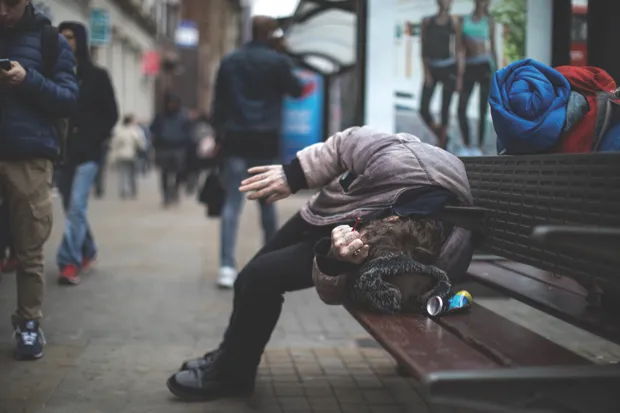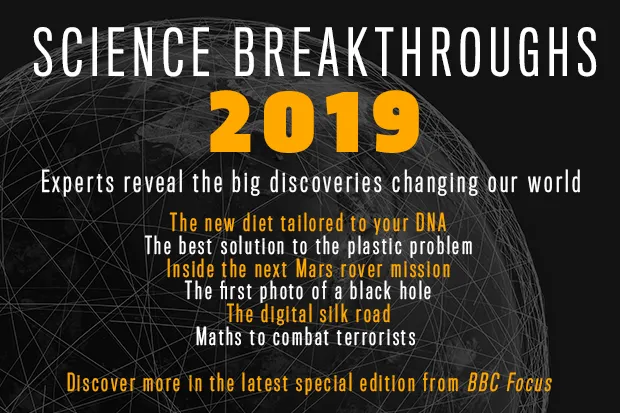Following campaigns by parents of children with severe epilepsy, doctors can now prescribe medical cannabis. For years the study and prescribing of cannabis-derived medicines have been restricted by UK drug laws, despite compounds in cannabis showing promise for a range of conditions, from epilepsy to anxiety to pain relief. But this could be just the start of sweeping changes to the way other illicit drugs are classified, too.
A growing body of research has shown that several other Schedule 1 drugs – including MDMA (ecstasy) and psilocybin (magic mushrooms) – can have a positive effect when combined with psychiatric therapy, helping patients overcome disorders such as depression, anxiety and post-traumatic stress disorder (see issue 330 of BBC Focus).
Experts believe that trials of these powerful hallucinogens will expand in 2019 and beyond, with the first treatments approved for use in perhaps five to 10 years.
“We’re seeing a shift in how these drugs are perceived by the medical community, by the public, by funding bodies and by regulators,” says Dr Charles Grob, a professor of psychiatry with a special interest in hallucinogens, substance abuse, and mood disorders. “The taboo seems to be falling aside and there is now the opportunity to look more objectively at their range of efficacy and their safety.”
Read more 2019 science breakthroughs:
But this is not just a case of necking some pills or mushrooms, and feeling a sense of calm. Patients are screened for suitability first and for the drugs to be effective, and they must be administered alongside intense therapy sessions that may last for many hours, an approach Grob calls ‘augmented psychotherapy’.
“You establish rapport with the patient in several introductory, preparatory meetings then you have a treatment session, many hours long, followed by several follow-up psychotherapy sessions,” says Grob. “It’s very different from the standard pharmaceutical model where you’re just taking your pills on a daily basis, sometimes for months or years on end.”
Some of the most promising and advanced research has looked at psilocybin, the powerful hallucinogen found in magic mushrooms. Studies found that administering the drug to people with terminal cancer helped them cope with the overwhelming and existential anxiety of being close to death. The drug, made illegal in the UK in 2005, has also shown promise in the treatment of chronic alcoholism, and even appears to help people quit smoking.
The chemical used in ecstasy, MDMA, has been shown in many trials to be helpful for people suffering from severe, recurrent and treatment-resistant post-traumatic stress disorder. The research has shown such promise that the US Food and Drug Administration (FDA) granted the treatment “breakthrough therapy” status last year, making it easier for researchers to study.
Ketamine, currently a class B drug in the UK (and already used in medicine as an anaesthetic) is another psychedelic being investigated for its powerful effect in psychiatric therapy. It has been shown to be effective in some people with particularly hard-to-treat depression and bipolar disorder, with people reporting long-lasting relief from symptoms after just one dose.
And researchers are just starting to look seriously at the effects of ayahuasca, the plant-based brew used in shamanic rituals by tribes in the Amazon basin. Again, early reports suggest that this powerful hallucinogen can help people overcome addiction and trauma.
Brain reboot
So what is it about psychedelic substances that makes them so useful in the treatment of these complex, personal mental health problems?
“There are some very interesting perspectives on something called the ‘default mode mechanism’ that says taking these substances is kind of like going offline and then rebooting the brain,” says Grob. “The other perspective tries to understand why these substances are effective from an entirely different direction. Many individuals report having a sort of mystical experience, a psycho-spiritual epiphany. This powerful spiritual experience, in and of itself, might be predictive of a positive outcome.”
The problem is, mystical or profound inner experiences are hard to study scientifically. That is made harder by the regulatory loops researchers must jump through to get the funding and licenses required to work with Schedule 1 substances. It makes them extremely difficult to study, says British neuropsychopharmacologist Prof David Nutt.
“It adds a lot of time and expense,” says Nutt, who was sacked as the UK’s chief drug advisor in 2009 because of his opposition to the government’s drug classifications. “It increases costs by about 10 times and adds, on average, about a year of time to get studies through all the extra regulations.”
Researchers like Grob are confident things will change soon: “We’re living in a different culture that’s more amenable to reconsideration of these compounds.”
More information and support for those affected by substance abuse problems can be found atbit.ly/drug_support
The zombie drug

The substance known as ‘spice’ is usually a mixture of dried and shredded plant material, sprayed with various synthetic chemicals meant to mimic the main component of cannabis, THC. These chemicals, when smoked, act on a key part of the central nervous system that regulates mood, pain-sensation, appetite and memory.
Spice and other types of ‘synthetic cannabis’ produce much more intense and long-lasting effects than THC, and because of the variation in the compounds and bulking agents used, are much more unpredictable.
Videos of spice users often show them in trance-like states, staggering around or convulsing – hence why newspapers are calling it the ‘zombie drug’. It can also be highly addictive and cause breathing difficulties, panic attacks and psychotic episodes.
Various brands of similar drugs were known as ‘legal highs’ before being banned in 2009. Despite the ban, authorities have struggled to keep track as new types of synthetic cannabinoids come onto the market.
As a result, ‘spice’ and variations of it are still easily available in the UK, and their use is a particular problem in prisons and among vulnerable groups.

Follow Science Focus onTwitter,Facebook, Instagramand Flipboard


